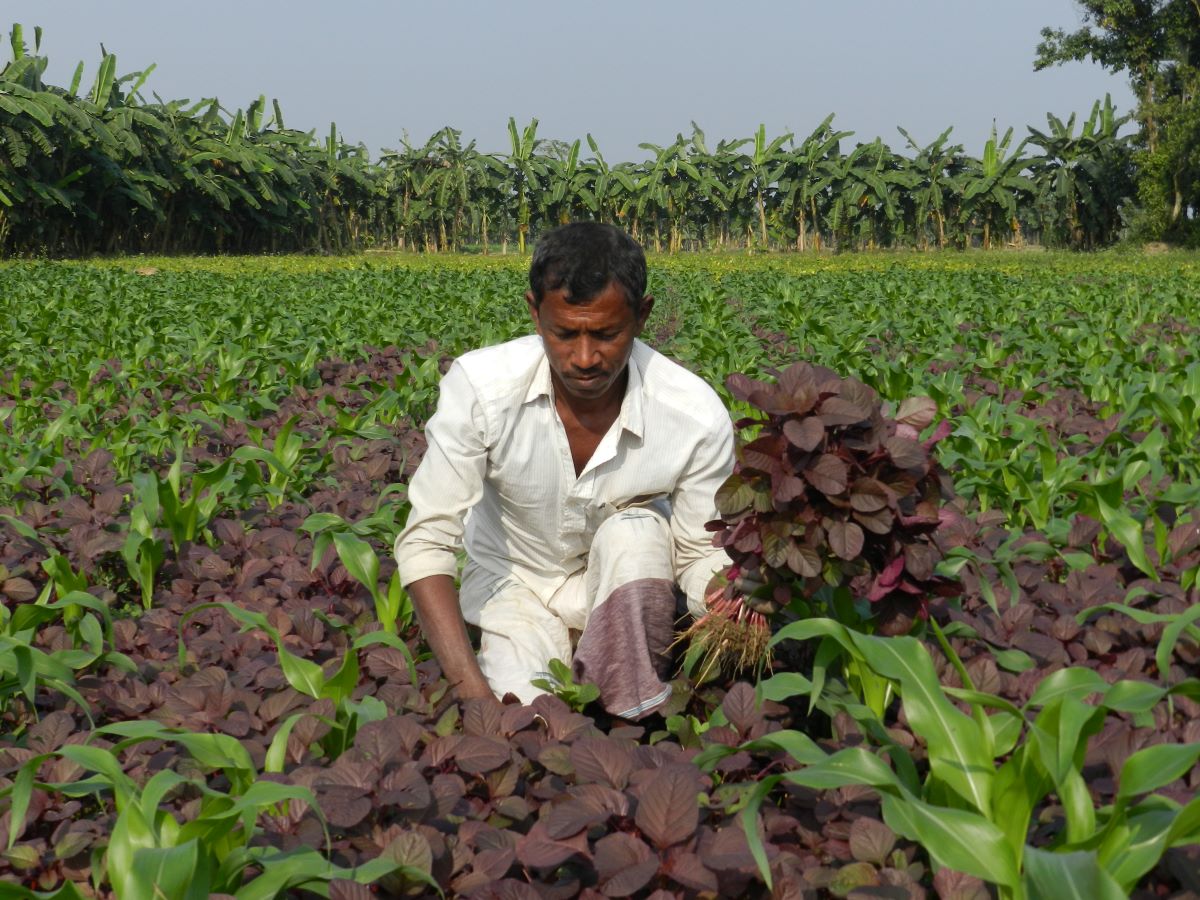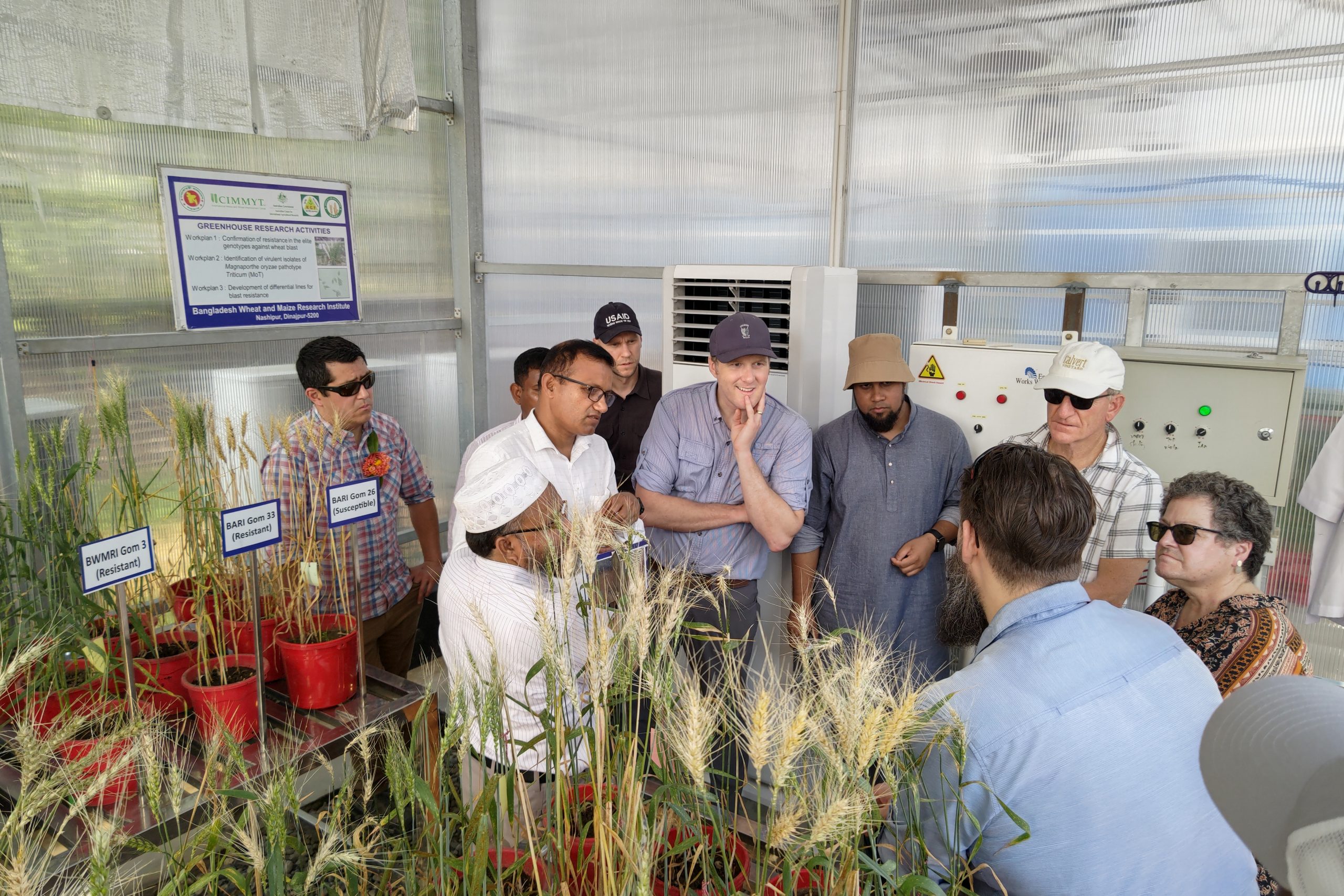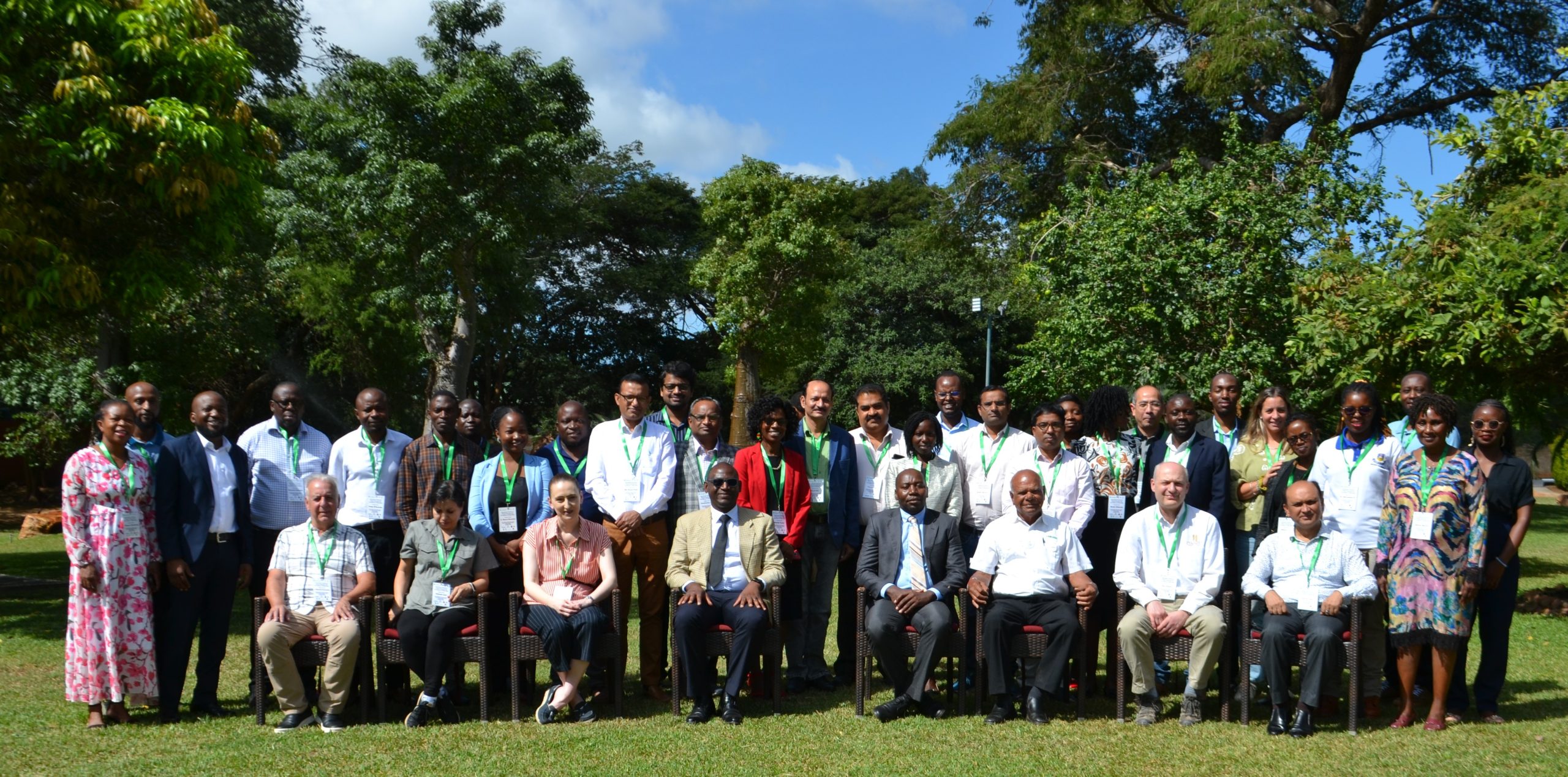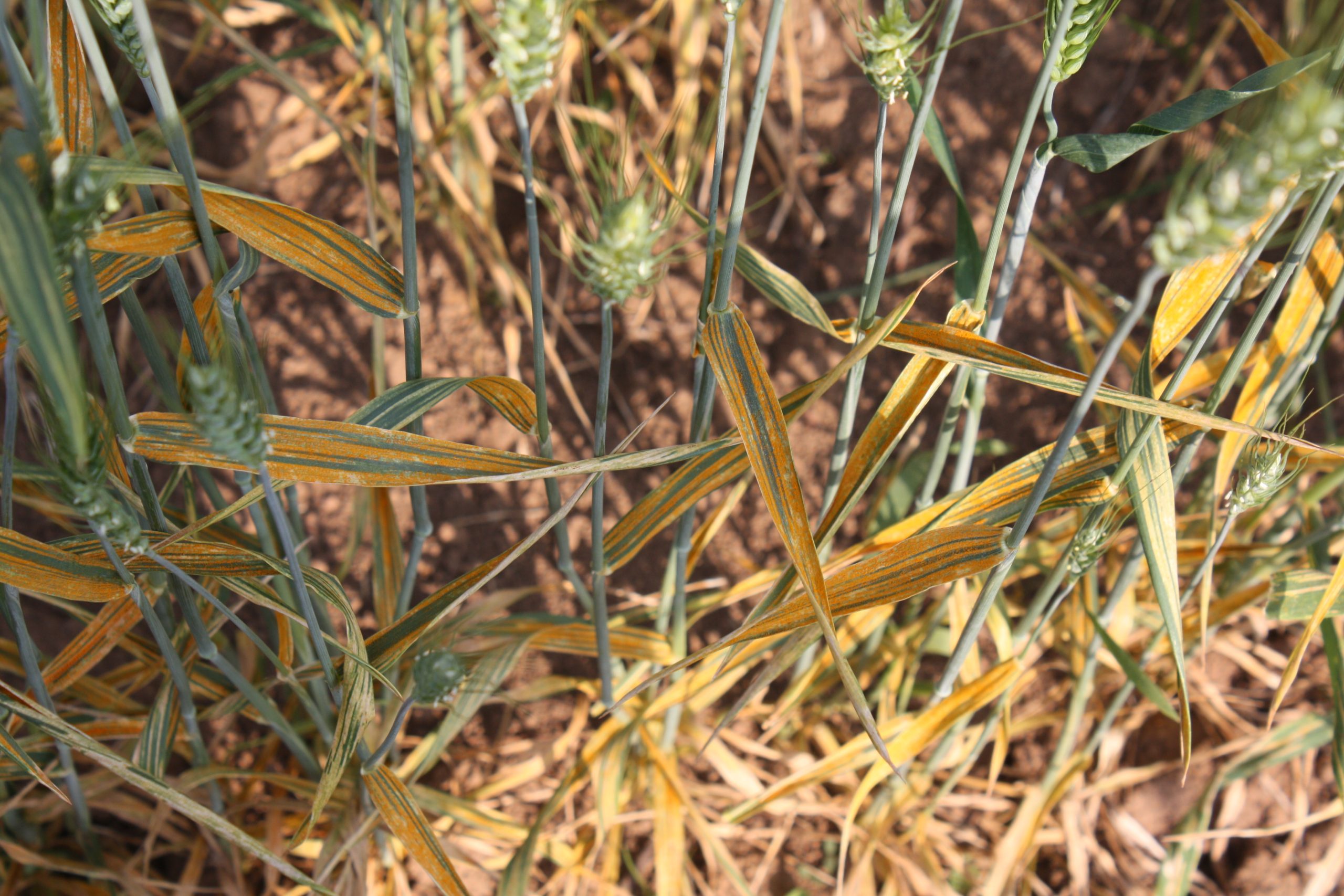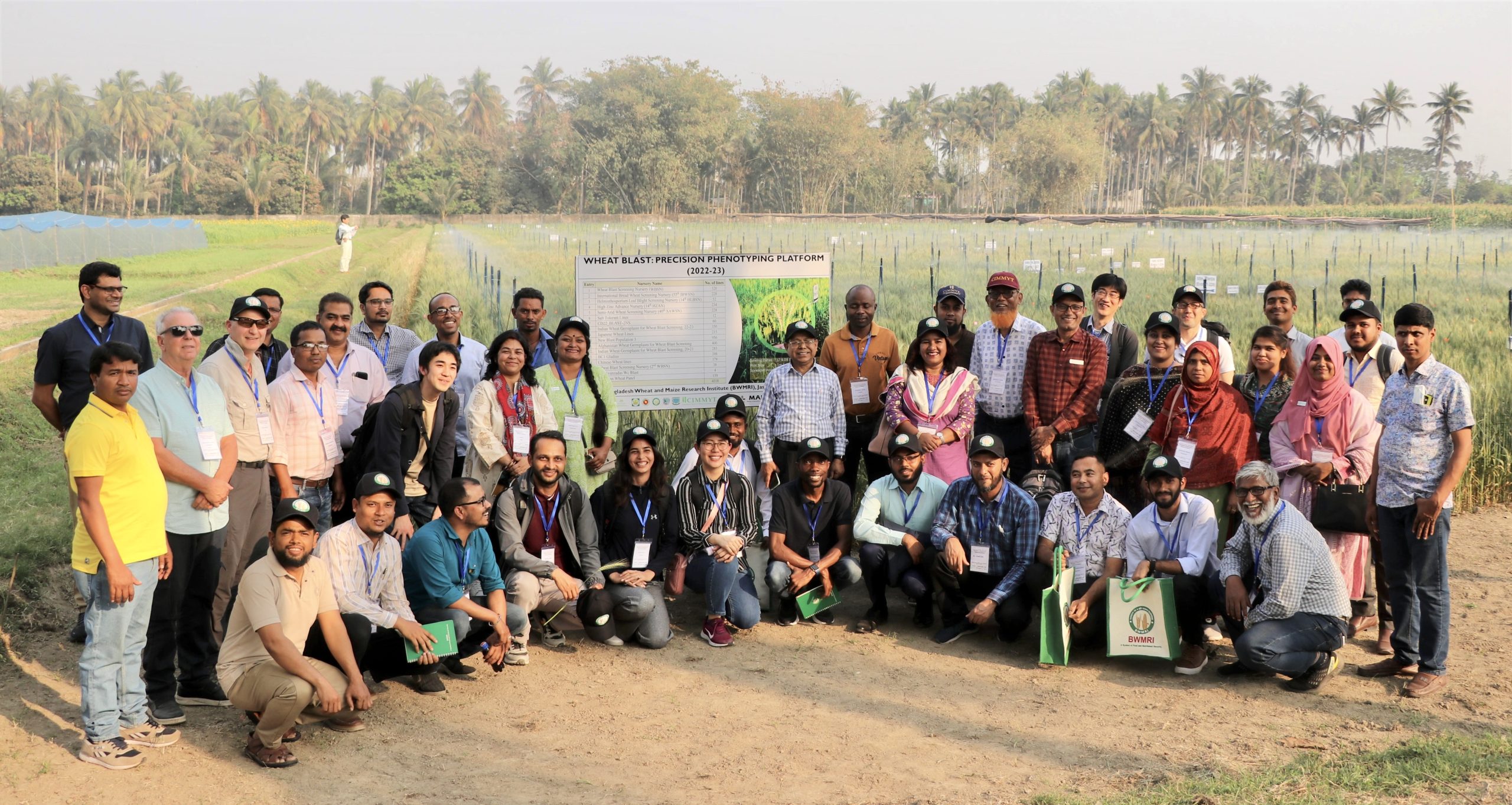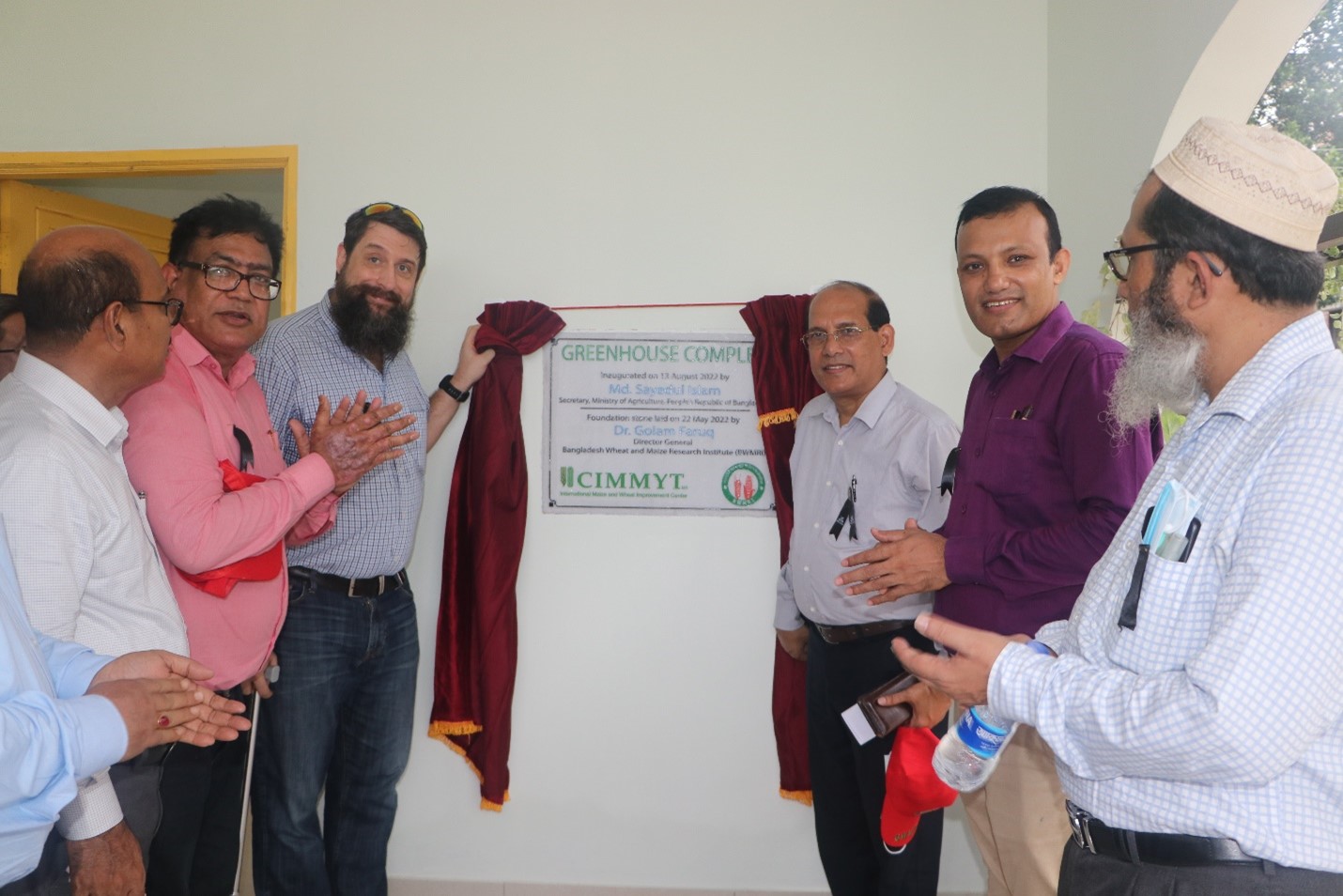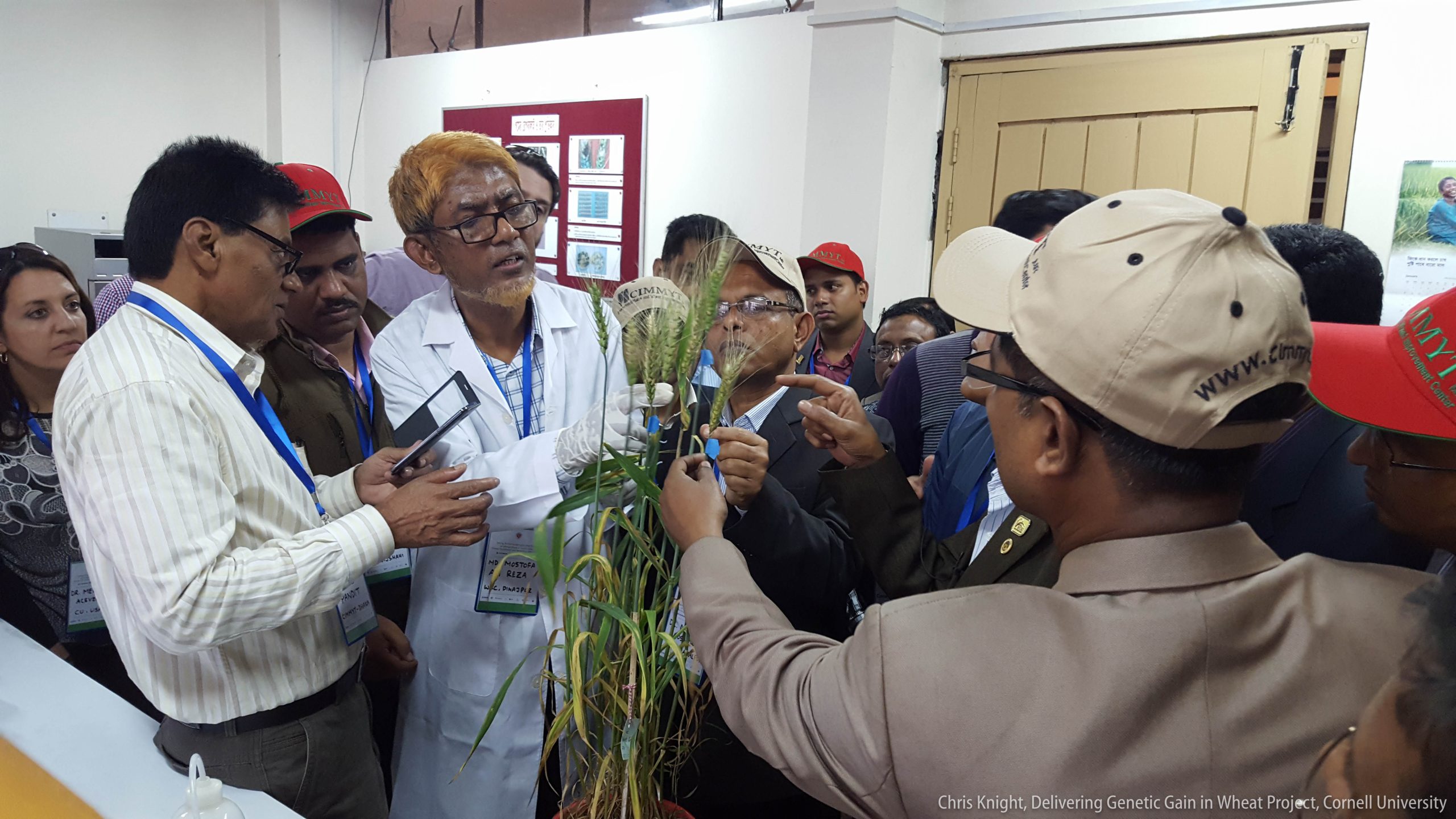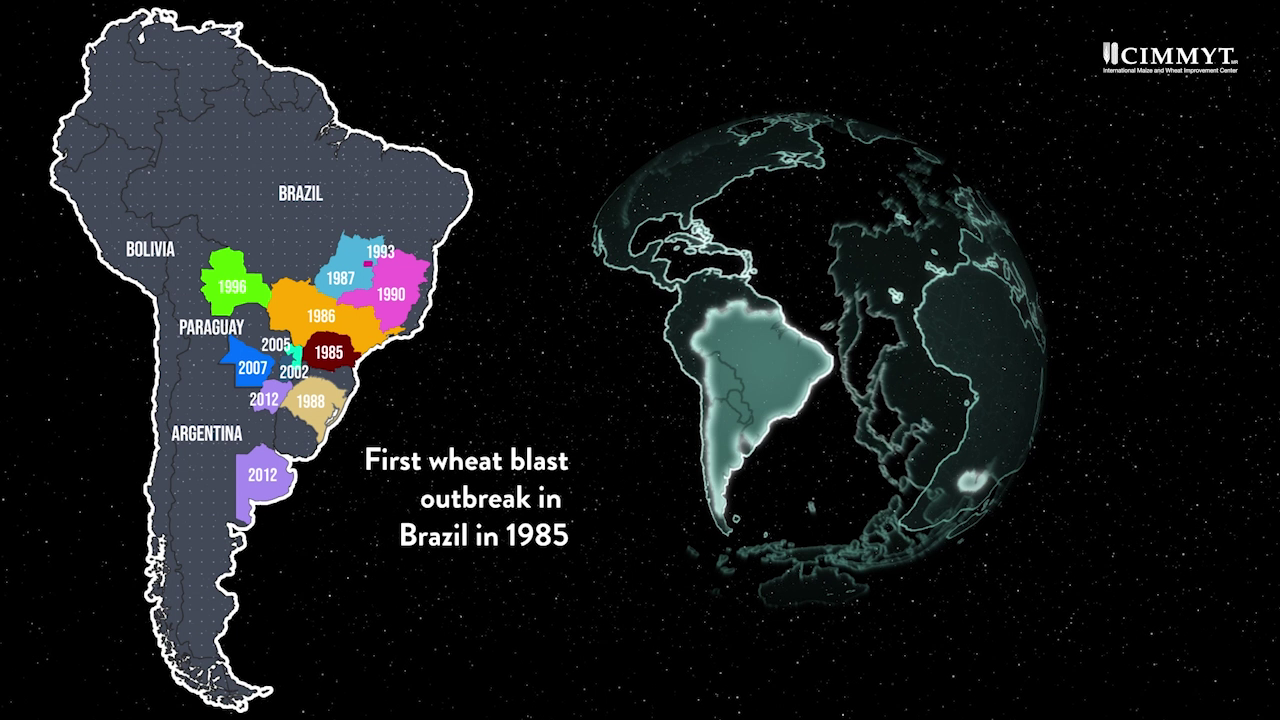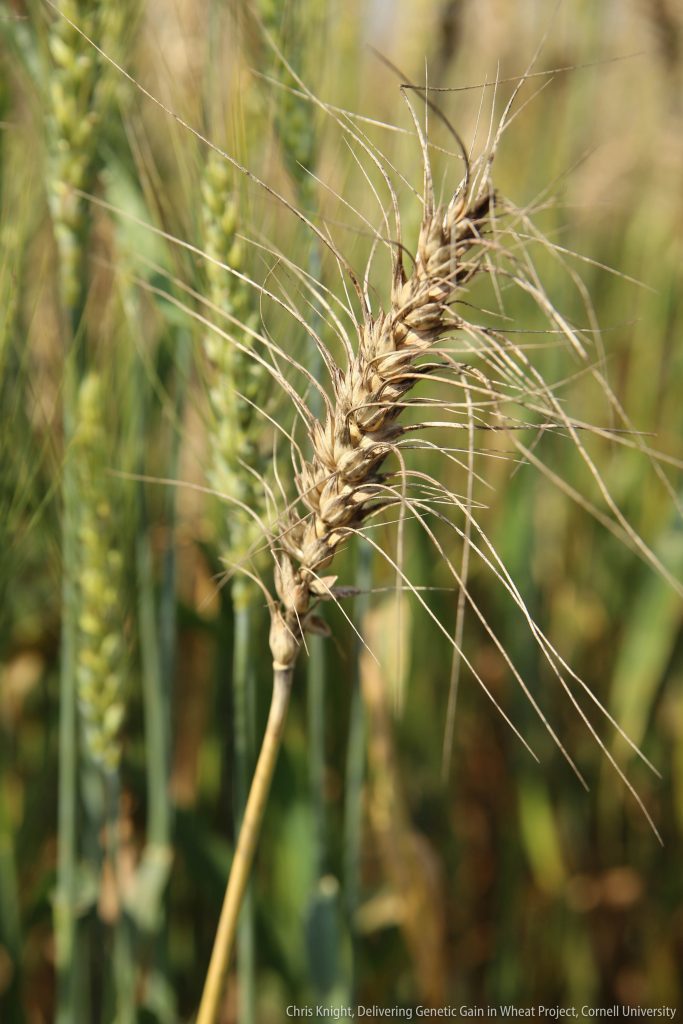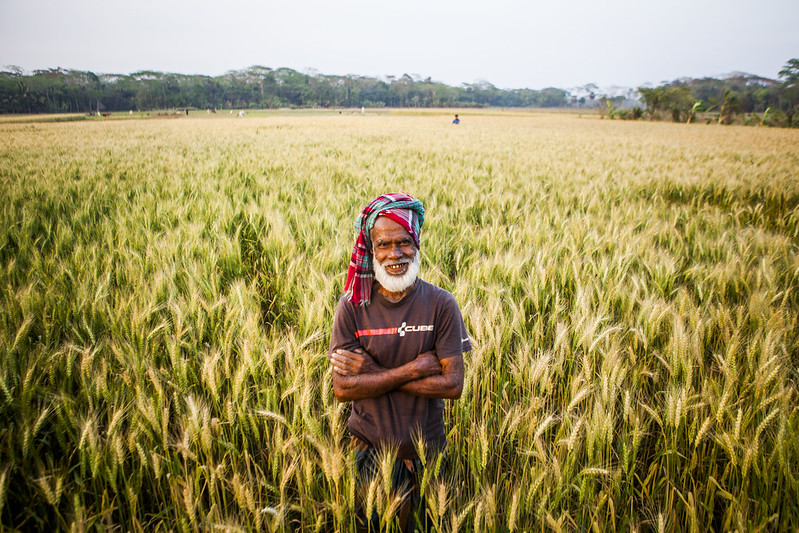Bangladesh Wheat and Maize Research Institute (BWMRI)
New Breakthrough in Wheat Blast Resistance: A Novel Non-2NS QTL Identified
 Climate adaptation and mitigation
Climate adaptation and mitigation
Discovery offers a new avenue for more durable and diversified wheat blast resistance
A journey through Bangladesh’s ground-breaking agricultural practices
 Capacity development
Capacity development
In a visit by USAID and CIMMYT, cutting-edge agricultural approaches in Bangladesh highlighted the power of combining technological innovations, climate-focused practices, and community power.
Building global capacity to combat wheat blast
 Capacity development
Capacity development
In collaboration with ZARI and other partners, CIMMYT brought together wheat scientists, researchers, academics, policymakers, and extension agents to address the urgent threat of wheat blast across borders.
Evaluation and Planning Workshop on Transforming Agrifood Systems in South Asia (TAFSSA)
 Capacity development
Capacity development
Through its work in South Asia, TAFSSA contributes to developing more sustainable and equitable agrifood systems for smallholder farmers in the region.
CIMMYT and BWMRI host international training program on surveillance and management strategies for wheat blast
 Capacity development
Capacity development
Wheat researchers, government extension agents, and policy makers gather in Bangladesh to develop their skills in pathology, breeding, agronomy, integrated disease management and agricultural extension technologies.
The Australian High Commission, ACIAR and BARC delegates recognizes the BWMRI-CIMMYT collaborative wheat blast research platform in Bangladesh
 Environmental health and biodiversity
Environmental health and biodiversity
Delegates travelled to South Asia to witness the success of a collaboration which is combatting wheat blast disease in Bangladesh and for other wheat growing nations.
Greenhouse upgrades at BWMRI for wheat blast research
 Capacity development
Capacity development
The developments will create capacity for national and international research and improve processes for disease screening in wheat.
New publications: Genome-wide breeding to curtail wheat blast
 Environmental health and biodiversity
Environmental health and biodiversity
Researchers evaluate the use of genomic selection in wheat breeding against deadly fungal disease.
Taming wheat blast
 Environmental health and biodiversity
Environmental health and biodiversity
Researchers point out the future of the disease, the ways to manage it and prevent it from spreading — within and across continents.
Preventing and protecting against wheat blast
 Environmental health and biodiversity
Environmental health and biodiversity
Cross-regional collaboration brings wheat blast protection to farmers in Bangladesh and Brazil.
The past, present and future of agricultural research
 Nutrition, health and food security
Nutrition, health and food security
Researchers join government officials and other stakeholders to discuss collaborative research and development activities in Bangladesh.

